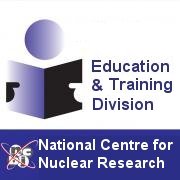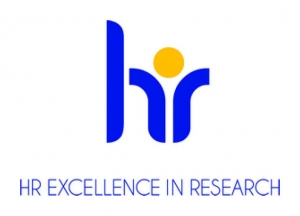PhD student position within the POLONEZ BIS i JRC – Petten | MAB NOMATEN
2023.09.28 14:30 - Anna Sawińska
Recruitment for the
PhD student position
within the POLONEZ BIS project (2022/47/P/ST5/01169) and COLLABORATIVE DOCTORAL PARTNERSHIP (CDP) with the Joint Research Centre of the European Commission (JRC) at National Centre for Nuclear Research, Poland
The National Centre for Nuclear Research (NCBJ) and the Joint Research Centre of the European Commission (JRC) are inviting applications in the field of "Non-power nuclear and radiological technologies" for a Ph.D. position through the Collaborative Doctoral Partnerships (CDP) scheme (Agreement n. 36149).
Place of work:
The Ph.D. research will be carried out jointly at the
National Center of Nuclear Research
Nomaten Center of Excellence
7 Andrzeja Sołtana str.
05-400 Otwock-Świerk, Poland
and
The European Commission – Joint Research Centre
Nuclear Safety and Security Directorate
Westerduinweg 3
1755 LE Petten, The Netherlands.
Research topic description:
The person hired will carry out the research topic related to the project entitled "Mechanical and structural properties of RAFM steels - impact of radiation damage.", which is funded by the National Science Center under the POLONEZ BIS competition – project number 2022/47/P/ST5/01169 (project leader Dr. Tymofii Khvan).
Materials under neutron irradiation are subject to irradiation damage and degradation of their mechanical properties. However, neutron irradiation studies for research purposes are complicated, time-consuming, and expensive, so emulating neutron irradiation damage by much faster and cost-effective ion irradiation is of high interest. At the same time, ion irradiation avoids activation of the irradiated material. However, the emulation of neutron irradiation by ion irradiation damage is limited by transferability issues and experimental uncertainties linked to the limited penetration of the energetic ions.
The goal of the work is to improve our understanding of the phenomena associated with the formation and evolution of ion irradiation-induced defects and their role in the deformation behavior in ferritic/martensitic (f/m) steels, incl. pure Fe, Fe9%Cr, Fe9%Cr-NiSiP and Eurofer 97. Nanoindentation will be carried out using different indenter shapes to study irradiation hardening. Radiation-induced defects will be identified by TEM. Complementary analyses will be carried out, including plasma-focused ion beam tomography of indents.
The project aims at establishing and validating a comprehensive testing protocol with complementary investigations to support the experimental activities. An experimental/computational procedure is targeted for effectively characterizing ion irradiation as a surrogate for neutron irradiation. The project will also contribute to developing and validating models for size effects during nanoindentation in irradiated steels through a statistical sampling approach across a specimen surface. It is well known that size effects are influenced by irradiation; however, the origin has been debated. Micromechanical models and validation experiments will be performed that will account for geometrically necessary dislocations generated at the indent. Based on dislocation dynamics formulations in samples with various defects/defect clusters, a machine-learning approach will be developed to evaluate nanoindentation responses in irradiated metals.
The Ph.D. project is expected to effectively improve experimental/computational protocols for the fast, safe, and reliable assessment of the irradiation impact on the mechanical properties of structural steels.
The topic is in line with the research carried out by the NCBJ and in line with the mission of the JRC. Therefore, the Ph.D. candidate will conduct his/her research for up to 24 months at the Joint Research Centre in Petten underemployment as a grant holder through the Collaborative Doctoral Partnerships (CDP) scheme (Agreement n. 36149). The candidate will be enrolled in NCBJ Ph.D. school and awarded a Ph.D. Degree in Physics at the end of the three to four-year Programme after successfully completing the entire Ph.D. requirements, including the successful defense of the Thesis as provided by the NCBJ Ph.D. school Regulations on Ph.D. Programmes.
PhD programme:
The duration of the Doctoral Programme is expected to be from three to four years (maximum). The planned start of the project is January 1st, 2024. It is expected that the Ph.D. candidate will join JRC in Petten (The Netherlands) during the third/fourth quarter of 2024 for up to 24 months. Afterwards, the Ph.D. candidate will return to NCBJ to continue the research and finally obtain a Ph.D. in Physics awarded by NCBJ.
We offer:
- full-time employment paid from the project 5000 PLN/month (gross) while staying at NCBJ, during research stay at JRC potential candidate will be offered a Grant holder (cat.20) contract (https://joint-research-centre.ec.europa.eu/system/files/2014-08/jrc_gran...) and will receive 39,240 Euros per year (gross), correction factor may apply + family & mobility allowance (if applicable).
- work in the only research institute in Poland with a nuclear reactor
- the opportunity to participate in the creation of a new international unit, the chance for personal success related to the development of MAB NOMATEN;
- the opportunity for personal growth through a diverse range of tasks and challenges in the study of materials dedicated to nuclear technologies;
- the opportunity to participate in international and national scientific conferences;
- additional annual salary and a package of benefits from the Company's Social Benefits Fund (among other things, holiday subsidies)
- company transportation providing access to Świerk from many places in Warsaw and the surrounding area (detailed schedule in the "contact" tab at old.ncbj.gov.pl).
Candidates should, prior to the start of the employment contract with the JRC:
- have the nationality of a Member State of the EU or a country associated to the Research Framework Programmes or being resident in EU Member State since at least five years.
- be enrolled in a PhD programme with the HEI.
Candidates who are already enrolled in the doctoral study program with the HEI for fewer than 12 months can also be considered eligible.
The selected candidate will have not more than 6 months from the request for confirmation of interest in the position, to produce proof of enrolment in the doctoral study program.
The hired person will be responsible for:
- preparation of samples for the experiments (cutting, polishing, encapsulating)
- preparing specimens for testing in a scanning and transmission electron microscopes (SEM/TEM);
- conducting studies at room and elevated temperatures (e.g., nanoindentation)
- conducting mechanical tests (mini-tensile with DIC, microhardness)
- development of micromechanical models and validation experiments to account for geometrically necessary dislocations generated under the indent
- developing a machine-learning approach to evaluate nanoindentation responses in irradiated metals (based on dislocation dynamics formulations in samples with various defects/defect clusters)
- reporting results on a regular basis;
- cooperating with all members of the CoE;
- preparation of scientific publications.
Requirements:
- MSc degree (or equivalent) within a relevant scientific area of the Doctoral Programme (e.g., physics, material science, nuclear engineering, mechanical engineering, or equivalent) giving access to doctoral studies;
- scientific experience documented by scientific publications;
- knowledge of the physical fundamentals of TEM methods (good understanding of the basics of crystallography);
- understanding of experimental methods of solid-state physics (e.g., nanoindentation and/or tensile testing);
- Theoretical background in physics-based modelling, including numerical methods, is an advantage;
- experience in examining radiation-damaged materials or mechanical testing at high temperatures would be a plus;
- willingness to continuously acquire knowledge and improve qualifications, creativity, responsibility, good organization, ability to work in a team, and communication skills;
- excellent oral and written English language skills.
Required documents:
- a resume containing the clause "I agree to process my personal data contained in the job offer for the purposes necessary for the recruitment process (in accordance with the Law on Personal Data Protection Dz. 2002 No. 101 item 926 as amended)".
- a cover letter;
- letters of recommendation
- a copy of the diploma confirming obtaining an MSc. Degree (or equivalent)
- list of scientific publications
- self-presentation, containing a description of the candidate's scientific achievements, along with a list of publications, patents, and implementations, description of other achievements (conference presentations, internships, etc.)
- any other possible documents that may affect the assessment
Selection Procedure:
All applications should be sent by e-mail before Feburary 29th to: magdalena.jedrkiewicz@ncbj.gov.pl (NCBJ HR manager).
Each applicant will be evaluated by the commission composed of at least three NCBJ members, including the Polonez Bis Project Coordinator, HR specialists, and a professor specializing in a given research discipline.
Preselected candidates will be invited for an interview and an oral examination of physics in Graduate School of Physics and Chemistry of NCBJ (https://gradschool.ncbj.gov.pl/). Only those who pass the exam will be taken into account in the final selection.
The applications of the shortlisted candidates will be shared with the JRC for confirmation and final selection. The JRC may contact pre-selected candidates for a further interview. Interviews will be held in English and may be carried out remotely by video call.
At the end of the selection procedure, the JRC will contact each pre-selected candidate to inform about the outcome of their application, the successful candidate will then be contacted by NCBJ for the enrolment procedure.
Contact: magdalena.jedrkiewicz@ncbj.gov.pl
All applications should be sent by e-mail to: magdalena.jedrkiewicz@ncbj.gov.pl
The National Centre for Nuclear Research is awarded by “HR Excellence in Research”. Recruitment is based on OTM-R system (Open, Transparent and Merit-based recruitment practices in Research Performing Organisations).













